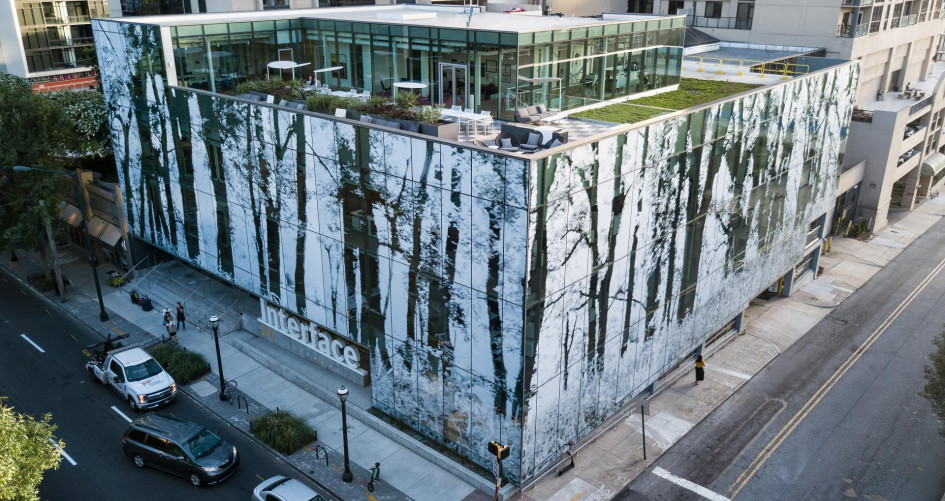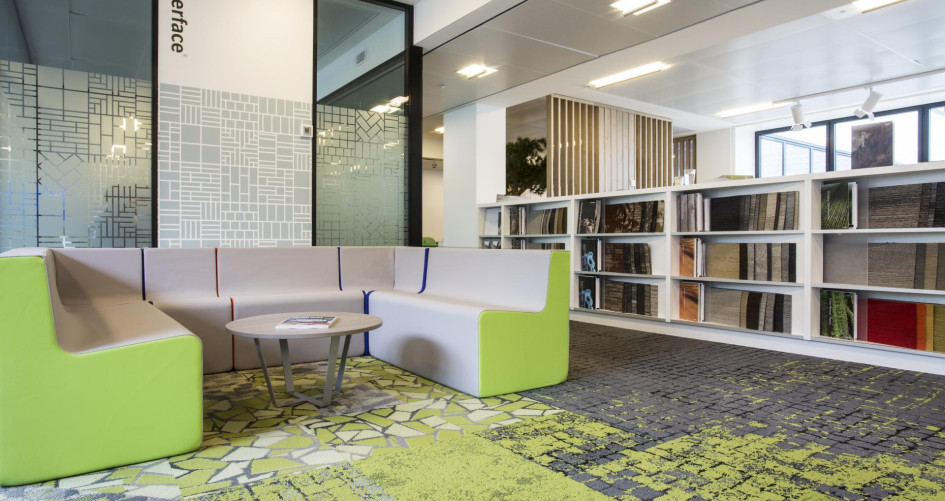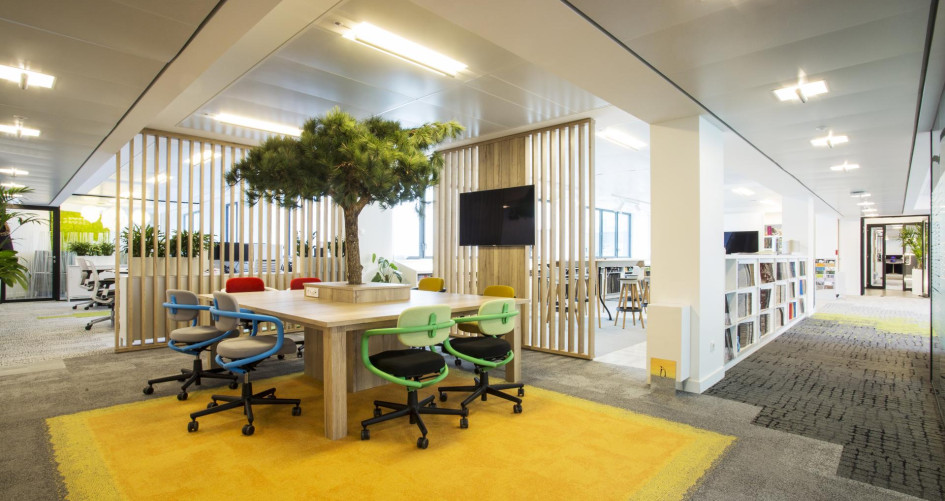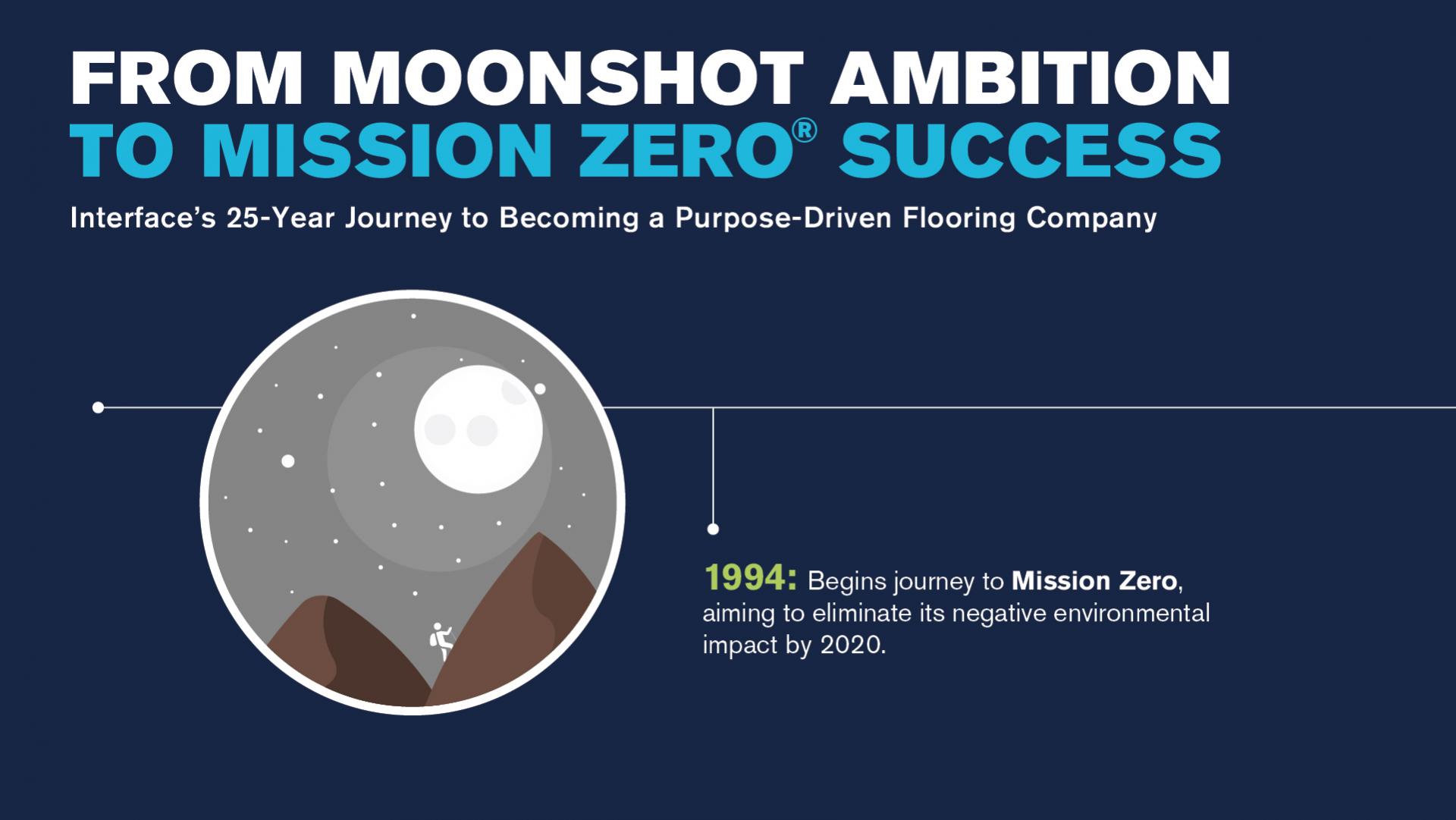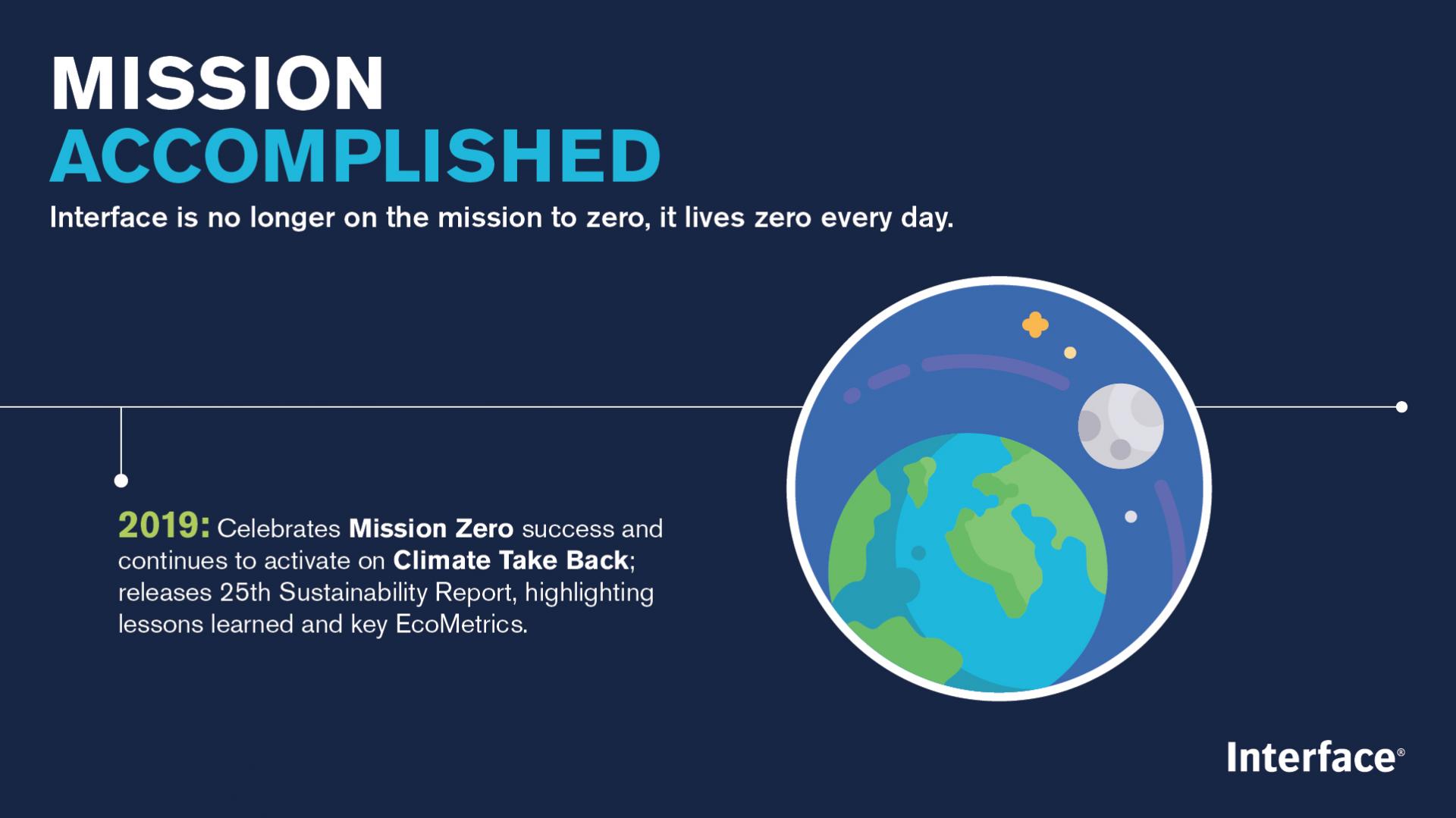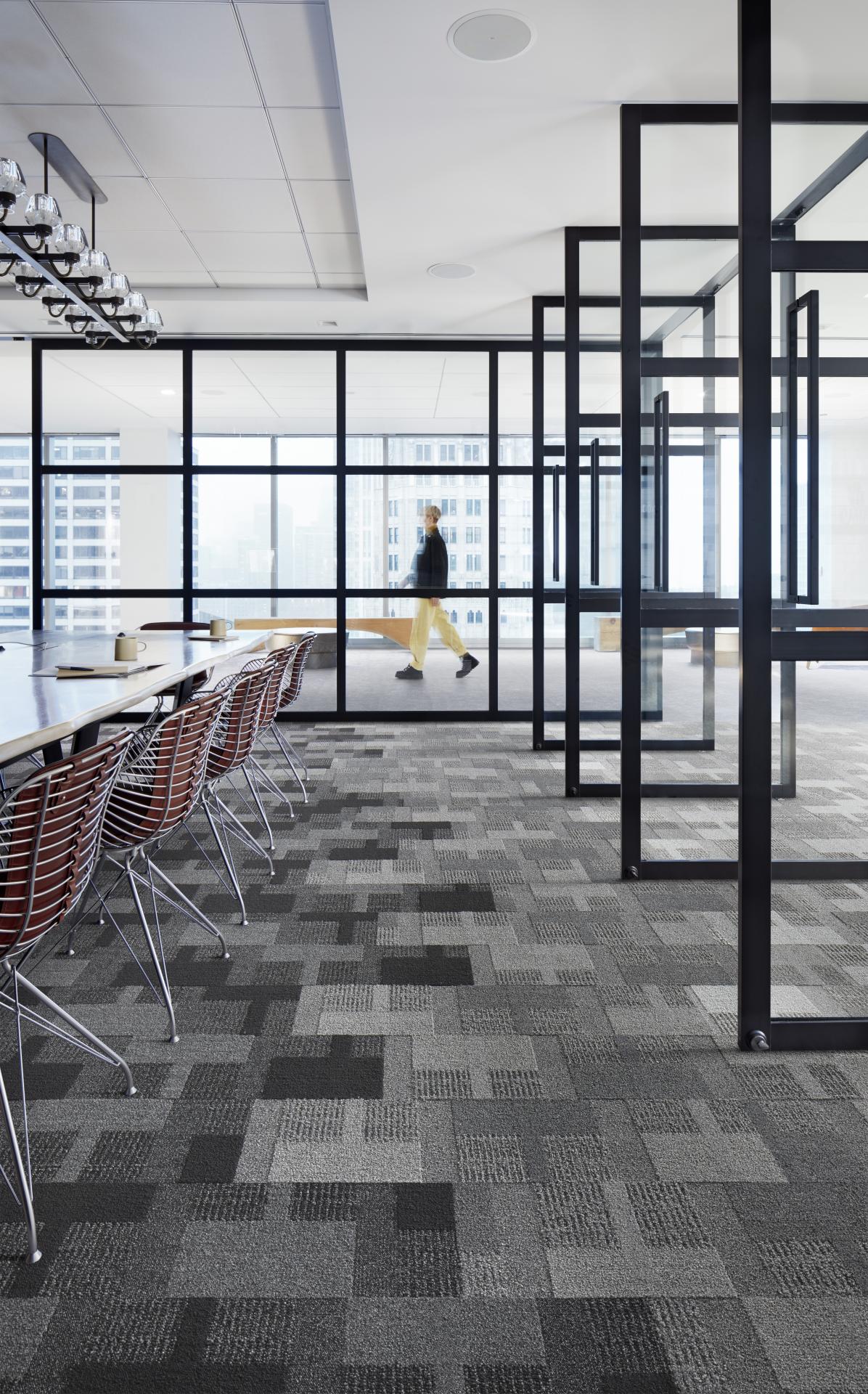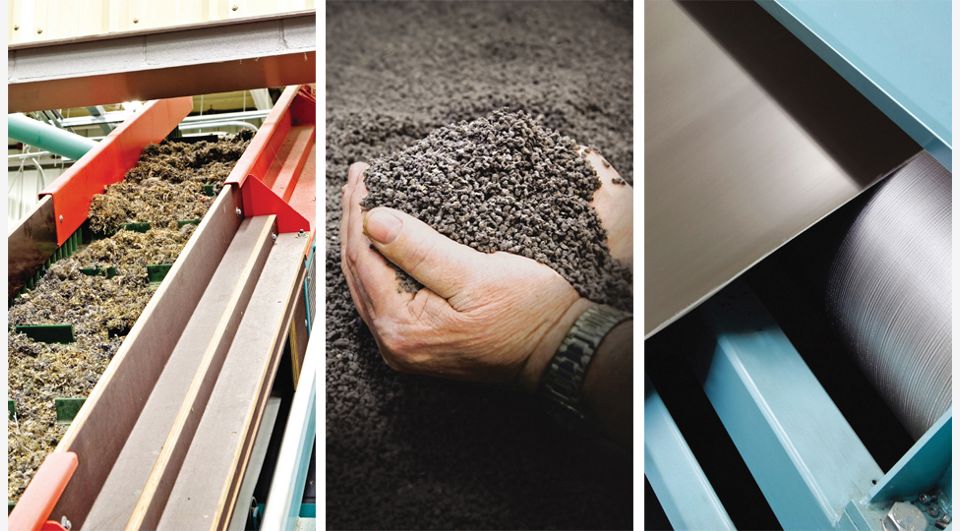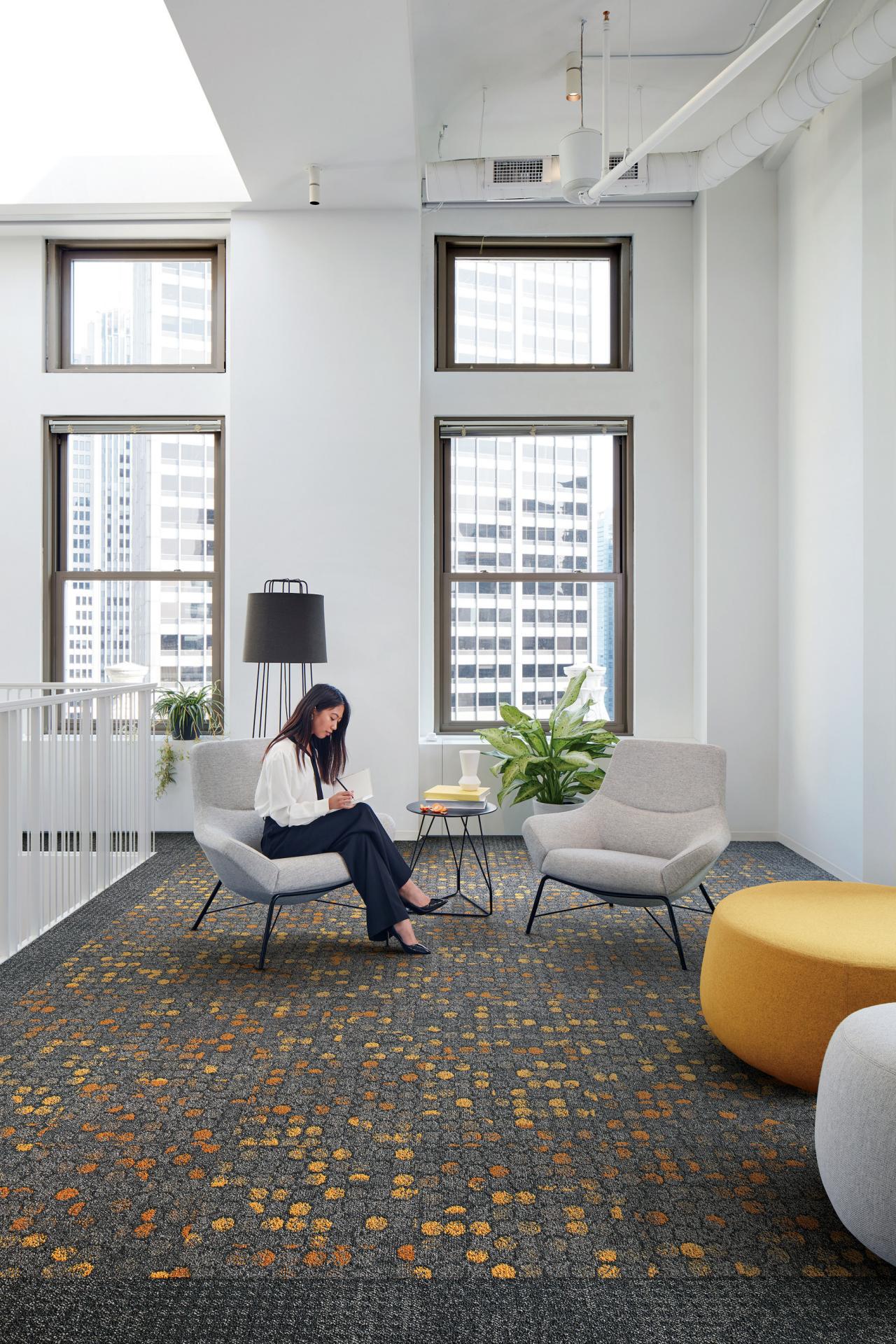In 1994, Interface began its journey to transform its business to have zero negative impact on the planet by the year 2020. Later named Mission Zero®, the global flooring manufacturer aimed to achieve this mission by setting aggressive sustainability targets after Founder Ray Anderson’s famous “spear in the chest moment” that changed his perspective on business and sustainability.
Interface significantly decreased its impact on the environment by focusing on three key areas of its business – its factories, products, and supply chain. Over the past 25 years, the company deeply reduced its operational footprint, reducing waste, energy, and water usage, while accomplishing major milestones like creating the ReEntry® Reclamation and Recycling program, achieving carbon neutrality across the full product life cycle for all of the flooring products it sells, and developing the world’s first cradle-to-gate carbon negative carpet tile.* Through Mission Zero, Interface inspired others, and its innovations laid the groundwork for both competitors and those outside the industry to follow with more sustainable business practices.
In November 2019, Interface announced Mission Zero success ahead of its original 2020 target and turned its full attention to its next mission, Climate Take Back™, which aims to reverse global warming. As it looks to the future, Interface is working ardently to become a carbon negative enterprise by 2040 and to develop processes and products that create a positive impact on the world.
*Based on publicly available information from The International EPD® System, Institut Bauen und Umwelt, and UL Environment.
Key facts
- Interface has reduced the carbon footprint of its carpet by 74% since 1996.
- Market-based GHG emissions at carpet manufacturing sites are down 96% in intensity from 1996.
- 75% of the energy used at manufacturing sites is from renewable sources, including 100% renewable electricity at all factory sites.
- 60% of the materials in Interface carpet tile products are from recycled or bio-based sources.
- In 2019, Interface expanded its measurement and reporting of Scope 3 emissions to account for its total carbon impact as an enterprise.
The challenge
The climate is changing – in the United States and throughout the world. Globally, we see evidence of rising air and ocean temperatures, shifting precipitation patterns, increasingly frequent and severe floods and wildfires, shrinking glaciers, declining snow cover and sea ice extent, and rising sea levels. To combat this, businesses must adopt aggressive climate goals and commit to action in the next decade. Interface is a pioneer and leader when it comes to business action on climate change.
The solution
Since beginning its sustainability journey, Interface has reduced its carpet’s carbon footprint by 74%. It achieved this reduction by working with suppliers to make changes to its raw materials, including the incorporation of recycled and bio-based materials, and by instituting more sustainable manufacturing actions, such as the use of renewable energy and process efficiencies.
While Interface has the most control over the material acquisition and manufacturing stages of its products, it does not control the delivery, install, customer use, and disposal phases of the carpet’s life, which represent a significant portion of the total carbon emissions. However, through the Carbon Neutral Floors™ program, Interface uses carbon offsets on an annual basis to cover the impact of those emissions both within and outside its control for that year.
Helping the planet
Interface’s efforts to reduce the impact of its operations have led its carpet manufacturing sites to see a 46% improvement in energy efficiency; an 89% reduction in water intake intensity, and; a 92% reduction in waste sent to landfills. However, Interface recognizes that it must go beyond just reducing the impact of its factories on the planet – it must shift toward a model where its factories produce positive impacts. This led Interface to partner with Biomimicry 3.8 on a pilot project called Factory as a Forest that examines how a factory can deliver the same positive impacts as an ecosystem. The pilot is exploring standards for how companies can operate to provide the same services as nature, including water filtration and carbon sequestration.
Helping people
Through the carbon offsets purchased under its Carbon Neutral Floors program, Interface supports projects that go beyond carbon benefits to have additional positive social impacts. These life-changing projects include efforts to supply clean, safe water and cookstoves to rural communities in Africa and Latin America. Offsets also play an important role by funding the actions (reforestation) and technologies (solar/wind generation) that are needed to address climate change and the human health challenges associated with excess carbon.
Interface’s Mission Zero activities also included establishing Net-WorksTM, a partnership with nylon supplier Aquafil and the Zoological Society of London. The program buys discarded fishing nets from some of the poorest communities in the world. The nets are recycled into new yarn for Interface carpet tiles by Aquafil, resulting in fewer ghost nets, less virgin materials and a new source of income for the communities.
Spillover effect
With Mission Zero, Interface inspired many other companies to follow its lead, increasing positive impacts at a scale well beyond what it could achieve alone.
During this journey, and as Interface shared its sustainability progress, others built their own programs and initiatives with Interface as their inspiration. And, as Mission Zero progressed, Interface started mentoring others, hosting business leaders from companies like Walmart and Mars, and encouraging them to establish their own sustainability agendas.
In celebration of announcing Mission Zero success, Interface released its “Lessons for the Future” report, which provides a roadmap for other companies to follow in pursuit of sustainability initiatives. “Lessons for the Future” offers a framework for changing business to change the world, encouraging others to create a powerful ripple effect that exceeds Interface’s original ambitions of zero impact.




Images owned by the activity partners, all rights reserved.
